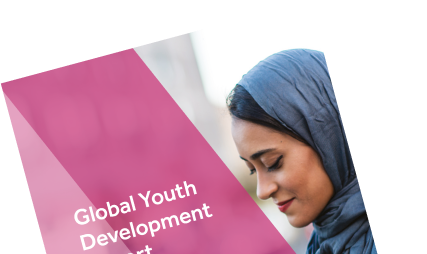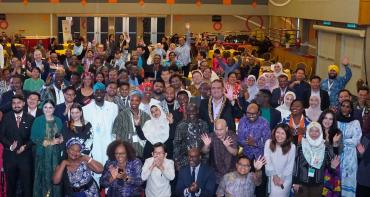Key Facts
- Globally, Education scores improved on average by 3%.
- Lower secondary school completion has improved by 5.3%.
- Literacy rates improved by 2.4%.
- Estimates suggest that less than 40% of young people are digital natives – that is, have 5 or more years’ experience using the Internet. The YDI report highlights the need to improve global data collection in this area and diversify the measurements of young people’s digital skills and engagement online.
- South Asia recorded the largest improvement with 16.13% improvement in the regional average.
- Sub-Saharan Africa also made substantial progress, posting nearly 10% improvement.
- Fifty per cent of Commonwealth countries received scores in the Education domain consistent with Very High and High levels of youth development.
| Top Global Performers in Education | ||
|---|---|---|
| Rank | Country | Score |
| 1 | Sweden | 0.963 |
| 2 | Estonia | 0.96 |
| 3 | United States | 0.956 |
| 4 | Singapore | 0.946 |
| 5 | Finland | 0.944 |
| 6 | Latvia | 0.941 |
| 7 | Denmark | 0.939 |
| 8 | Barbados | 0.936 |
| 9 | South Korea | 0.932 |
| 10 | France | 0.93 |
| 10 | Lithuania | 0.93 |
| 10 | Norway | 0.93 |
Report Highlights
Download the report for insights into:
- Effects of the COVID-19 pandemic on education.
- Lifelong skilling for the digital economy.
- Sustaining effective apprenticeship programmes through public-private. partnerships.
- Creating opportunities for youth in refracted economies.
- How sport contributes to quality education.
- Examples of #YouthTakingCharge of education by supporting students with autism and learning difficulties, and using sports, arts and storytelling to support students with their mental health and emotional well-being.




